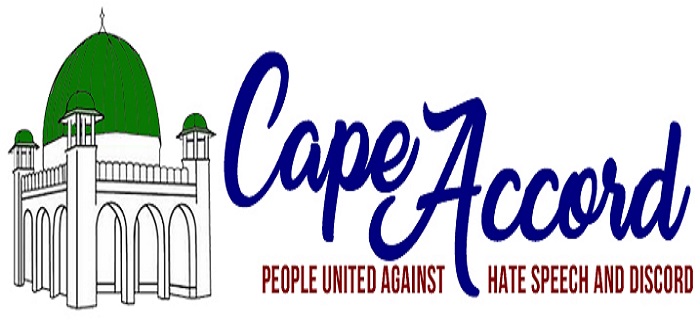As discussion around the contentious Cape Accord intensifies within the Muslim community, the Muslim Judicial Council (MJC) has announced that it will not sign the document, citing “contextual inconsistencies.” The MJC discussed the contents of the document at a special General Majlis Meeting on Wednesday. The Cape Accord embraces the spirit of the Amman Message, which was signed in 2005 by more than 500 leading Muslim scholars worldwide. The declaration calls on communities to unite against hate speech and discord and to promote intra-Muslim tolerance and cooperation.
The MJC, one of the largest ulema bodies in South Africa, has been placed under immense pressure to sign the Cape Accord since the document has been discussed in the mainstream media and public over the past two months.
“The Cape Accord did not adequately and broadly consult with Úlamā bodies, the community and
organizations. It is surrounded by contextual inconsistencies and contains textual flaws and ambiguities,” said the MJC in a statement.
The ulama body explained that it, however, remains committed to “mutual respect, tolerance, social cohesion and will unequivocally advocate against and denounce sectarianism, hate speech, violence and abuse.”
“Prior to stating the concluded upon position, the MJC reiterates it’s commitment to; It’s commitment to The attainment and preservation of the higher objectives of Islāmic Law (Maqāṣid Al-Sharīáh) [and] the universal values of peace, tolerance, mutual respect, human dignity, harmonious coexistence in all its diversity and plurality, social cohesion and nation building.
“…the ulamā fraternities are duty bound to provide religious and moral guidance wherever and whenever it is required [and] that it is the duty and responsibility of the MJC to protect the creed of Ahl al-Sunnah wa Al-Jamāáh,” the MJC Secretary-General, shaykh Isgaak Taliep, noted in the statement.
With growing criticism against Muslim scholars in the wake of purported extremist rhetoric within South Africa, the MJC further affirmed its position that it does not support making “blanket” takfīr (excommunication) of Shīáh Muslims.
The MJC’s statement was not devoid of critique of the contents of the Cape Accord.
“[The Cape Accord] is not legally enforceable. Therefore, any controversial matter related to non-signatories renders the Cape Accord insignificant in relation to them; [they] did not adequately and broadly consult with Úlamā bodies, the community and organizations; is surrounded by contextual inconsistencies; contains textual flaws and ambiguities.”
READ: FULL MJC STATEMENT ON CAPE ACCORD
In response to claims by the MJC that they were not properly consulted on the document, Cape Accord spokesperson Sataar Parker said the MJC was in fact the first ulama body to be approached about the document.
“If one reads the statement of the MJC, I am extremely delighted by the fact that they espoused the values of tolerance and harmony within our community – that is exactly what the Cape Accord is all about,”Parker stated.
Parker confirmed that the Cape Accord in its current form is only a preliminary document and that the authors are open to engage ulama bodies on how to improve its wording and content.
He said the authors of the accord approached organisations, such as the MJC, to seek guidance and welcomed input on the contents of the document.
“When the ulama speaks, we need to listen to them, we to take their guidance and if they feel that the accord is not 100 per cent in terms of their acceptability [then] yes it is not set in concrete and we will be more than amenable to be able to engage with people in the hope that we can produce a document that would be broadly acceptable to as many people and organisations.”
Parker further affirmed that the Cape Accord, while it is not a defender of Shi’a Muslims, deals with concerns within the “house of Islam.”
“Anyone who slanders the sahaaba [companions of the Prophet PBUH] or slanders bibi-Aisha, the Cape Accord would be able to take up that against any form of slander to anyone of our revered past luminaries of the history of Islam.
“We do disagree with many of the other issues besetting our community, but let’s do it within the principles as taught to us by our beloved Prophet [PBUH], which is to engage with people with respect and where people are wrong we need to tell them that they are wrong.”
Following the release of the Cape Accord for public consumption, social media has become a breeding ground for hate filled comments against those in favour of the document, as well as criticism against those who reject it.
Debates around the Cape Accord reflect a deep divide within the South African Muslim community.
“There are certain individuals who have completely hijacked the accord for their own purposes and that is highly regrettable,” Parker continued.
VOC 91.3fm






 WhatsApp us
WhatsApp us 

